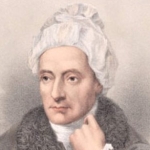His father carved umbrella handles, but when umbrella
handles were made by machinery, there was only one
man for whom his father could work.
The pay was small, though it had once been a good trade.
They lived in the poorest part of the ghetto, near the lots
where people dump ashes.
get out of the mess he himself was in. “Learning is the
best merchandise,” he would say.
His father died; there was his mother to be taken care of. He
taught in a school in the ghetto.
Some pupils came at nine and stayed until three; others came
after public school and stayed until evening; most of the
pupils came in the evening.
The courses were crammed, lasting a few months, pupils and
teachers anxious to be rid of the matter as soon as
possible.
So he worked day and night, week-days and Sunday.
His mother was dead. It was cold in the street and windy. A
dry snow had fallen and the feet of the walkers were
turning it into brown sand.
He was forty.
Now he was free. To do what? He knew no one whom he
cared to marry. And who would go into his poverty?
If he were to give up this work he knew so well, to what else
could he turn?
was no other.





















Comment form: